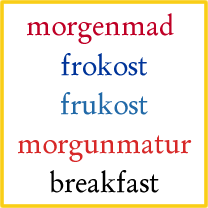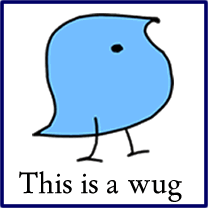
In Welsh the word for hand is llaw [ɬau̯], which also means authority, control, influence; side, direction, position; skill, touch; hand(-writing), signature; hand (of cards); hand (for measuring horses); man, person; workman; expert.
When talking about a pair of hands, the dual form dwylo is used. Plural forms for three or more hands are llawiau, llawau or llawoedd.
Do any other languages have different dual and plural forms like this?
Llaw comes from the Old Welsh lau (hand), from the Proto-Brythonic *lọβ̃ (palm, hand), from the Proto-Celtic *ɸlāmā (palm, hand), from Proto-Indo-European *pl̥h₂meh₂ (palm, hand), which is also the root of the English word palm (of the hand).
Here are some words and phrases llaw appears in:
– llawio = to handle
– llawiog = handy
– llawedig = handled, used
– llawan = litte hand
– llawagored = generous (“open hand”)
– llawdde = skilful, dexterous (“right hand”)
– llawddwein = palmist (“hand wizard”)
– llawfeddyg = surgeon (“hand doctor”)
– llawfer = shorthand
– llaw(h)ir = generous (“long hand”)
– llawlyfr = handbook, manual
– llawysgrif = manuscript
– llawysgrifen = handwriting, longhand
– llawgymwys = even-handed, impartial, unbiased (“hand equal“)
– llawsafiad = handstand
– blaenllaw = in advance, beforehand, previous (“hand”)
– gerllaw = near, close to, by; at hand (“near hand”)
– heblaw = besides, in addition to; without (“without hand”)
– uwchlaw = above, over, beyond (“over hand”)
– islaw = below, beneath, under (“low hand”)
– llaw flewog = pilfering hand, light fingered (“hairy hand”)
– llaw galed = trouble, rough time, hard time (“hard hand”)
– llaw ganol = intermediary, intermediate (“middle hand”)
– ar bob llaw = on all sides, on every side (“on every hand”)
– o waith llaw = handmade
Sources: Wiktionary, Geiriadur Prifysgol Cymru, Geiriadur yr Academi, Y Geiriadur Mawr



